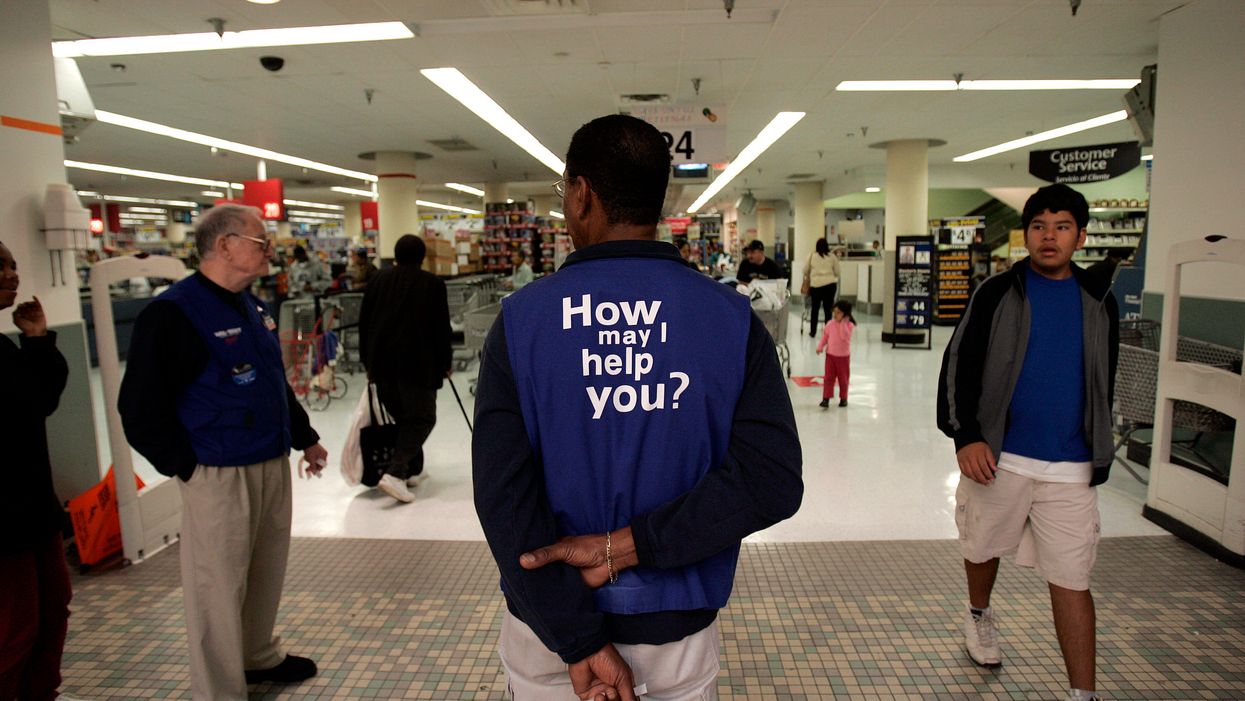
Allen J. Schaben/Los Angeles Times via Getty Images

Many of the company's greeters who are disabled or elderly fear they will soon be out of work
Walmart recently announced it would soon replace "people greeters" with "customer hosts" at about 1,000 stores across the country.
The decision has drawn criticism from some who believe many of the company's disabled and elderly blue-vested greeters will be left out of work.
"As we strive to constantly improve the experience for our customers, we will need to adjust roles from time to time," Walmart said in a statement to USA Today. "We've recently shared our plans to change the responsibilities of the people greeter role in some stores and that involves associates with disabilities in some cases."
The expanded customer host role will be more demanding than the current greeter role. Customer hosts must be able to lift 25 pounds, stand for long periods, climb ladders, and handle customer returns, among others, according to The Associated Press.
Greeters with cerebral palsy, spina bifida, and other disabilities have been welcoming customers into the stores for decades, but last week they learned their jobs would be ending April 26.
"Some of the changes, of course, involve tougher choices related to the roles our associates play and how we staff our stores. I never make these lightly," Walmart CEO Greg Foran said Thursday in a note to store managers.
In 2016, the company started phasing in the customer host position as part of its efforts to better compete against online retailers such as Amazon.
Walmart has instructed its store managers to work with each affected employee to help them find another role in their store, according to Foran's note.
In terms of the associates with disabilities who are transitioning out of the People Greeter position, we recognize these people face a unique situation. And because not all disabilities are the same, each case requires a thoughtful solution.
For that reason, we are looking into each one on an individual basis with the goal of offering appropriate accommodations that will enable these associates to continue in other roles with their store.
With that in mind, for associates with disabilities impacted by the changes to the Greeter position, we have extended the current 60-day transition period while we explore the circumstances and potential accommodations that will make sense for each person.
Let me be clear: If any associate in this unique situation wants to continue working at Walmart, we should make every effort to make that happen.
The news has been difficult for 42-year-old John Combs of Vancouver, Washington, who has cerebral palsy, the AP reported.
"What am I going to do, just sit here on my butt all day in this house? That's all I'm going to do?" Combs asked his sister and guardian, Rachel Wasser. "I do my job. I didn't do anything wrong."
Jay Melton of Marion, North Carolina, has worked as a greeter for almost 17 years. His sister-in-law, Jamie Melton, told the AP that his job is "what gets him out of bed."
And 31-year-old Mitchell Hartzell said his store manager told him there wasn't another position for him after April. "It seems like they don't want us anymore," Hartzell, who has cerebral palsy, told the AP.
At least three complaints have been filed with the U.S. Equal Employment Opportunity Commission and a federal lawsuit in Utah over the issue. Federal law requires that employers provide "reasonable" accommodations to workers with disabilities.
It's unclear how many disabled or elderly workers could end up without a job.